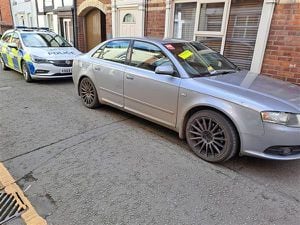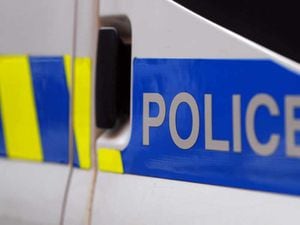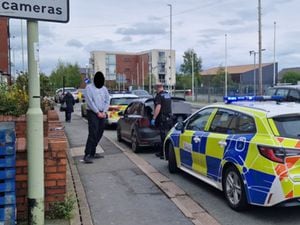Pensioner who died after 'glancing' car blow was waiting four hours in road for ambulance, court told
An 86-year-old pedestrian who died later after being knocked over by a “glancing” blow from a car had spent four hours lying in a road waiting for an ambulance to arrive, a jury heard.

Mold Crown Court was told on Monday that George Ian Stevenson had been conscious and in “good spirits” at first as he lay on the damp High Street in Johnstown, between Ruabon and Wrexham.
But prosecuting barrister John Philpotts said he became increasingly cold and as time passed his “vital signs” grew weaker. Off-duty paramedics had tended to him.
He told the jury: “Despite regular updates and reminders of the urgency of the situation, an ambulance from south Gwynedd wasn’t assigned the task of attending until 10.01 that night and arrived at 11.37pm.”
The collision had occurred just before 7.30pm. Mr Stevenson had died shortly after midnight after going into cardiac arrest. He’d been taken by the ambulance to Wrexham Maelor Hospital.
Dale Hilton, 42, of Heol Kenyon, Johnstown, denies causing death by careless driving in a Citroen C2 car when under the influence of a drug on March 2, 2022.
Mr Philpotts said the prosecution alleged Hilton was under the influence of cocaine. The jury was told Hilton accepted he had taken the drug “some days before” but denied it affected his driving that night and that he drove carelessly.
The prosecutor said the cocaine breakdown product in his blood was almost five times the legal limit. Mr Philpotts maintained :“The fact Mr Hilton had taken cocaine at some point will inevitably have affected his attention to the road ahead of him. We don’t say this was a wickedly, deliberate piece of dangerous driving. It was careless.
“Mr Hilton did all he could following the collision. He remained at the scene. He moved his vehicle to a position which protected Mr Stevenson.”
Home Office pathologist Dr Brian Rodgers said Mr Stevenson died from “massive chest trauma".
About the ambulance delay and whether the pensioner could have been saved, the pathologist said in a statement: "This is very difficult to answer.”
However, he added: "Earlier major intervention, such as ventilation and support of his breathing, could possibly have altered the outcome in this case.”
The pensioner’s wife of 36 years, Sylvia, said they had enjoyed travelling and her late husband had been a keen motorcyclist and welder working in a garage.
He’d been walking to the Grapes Inn pub when the collision happened.
Mrs Stevenson said she had been called by Hilton and she found her husband awake and talking, lying in the recovery position. But it was “very cold".
Outlining the prosecution case, Mr Philpotts said Mr Stevenson had poor eyesight and had been trying to cross the road when he suffered a glancing blow from the side of Mr Hilton’s car.
The defendant wasn’t speeding but should have been able to brake or steer away from the pedestrian, the prosecution claimed.
In a statement PC Katie Bellis, who arrived shortly after the collision, said Mr Stevenson was covered with several blankets but had been lying on a cold and wet road.
“He told me he was on his way to the public house for a pint of John Smith’s,” the officer said.
Two off-duty paramedics came across the scene shortly before 9pm but had no medical kit. One of them, Sarah Betts, said the pensioner had been “crying out in pain.”
They didn’t want to move him to avoid worsening any injuries. But Mr Stevenson’s condition had deteriorated and his pulse became weaker. A solo paramedic had arrived but Mr Stevenson quickly went into cardiac rest in the ambulance.
Three off-duty paramedics in all had travelled with him to the hospital, giving life-support.
Harry Constable, a paramedic working at Tywyn in south Gwynedd, had been sent across North Wales to the collision scene.
Hilton told police he had been doing 18-20mph before the collision and he had cocaine two days before. It hadn’t affected his ability to drive that night, he insisted. “It didn’t affect me in a bad sort of way.”
The trial continues.





